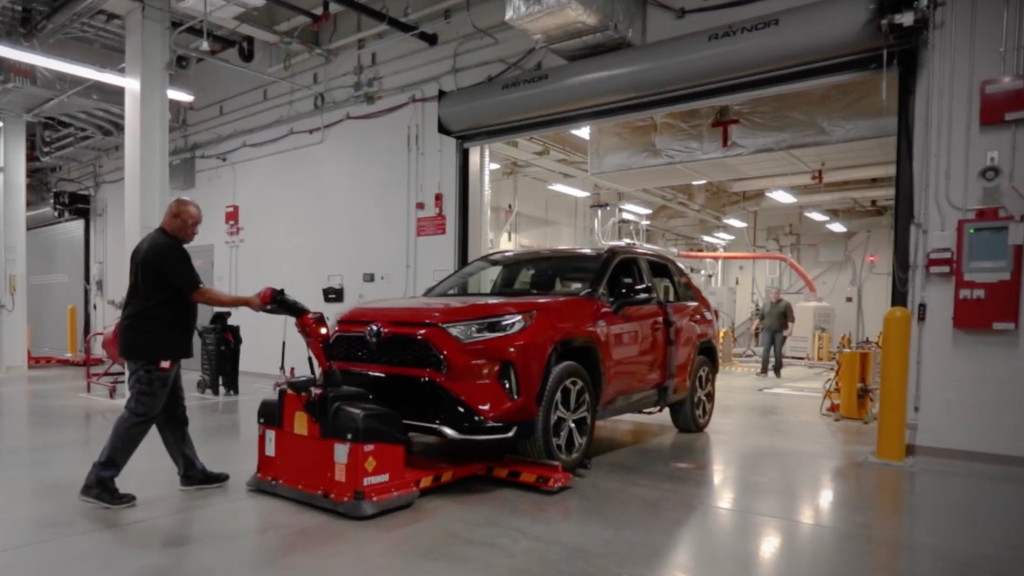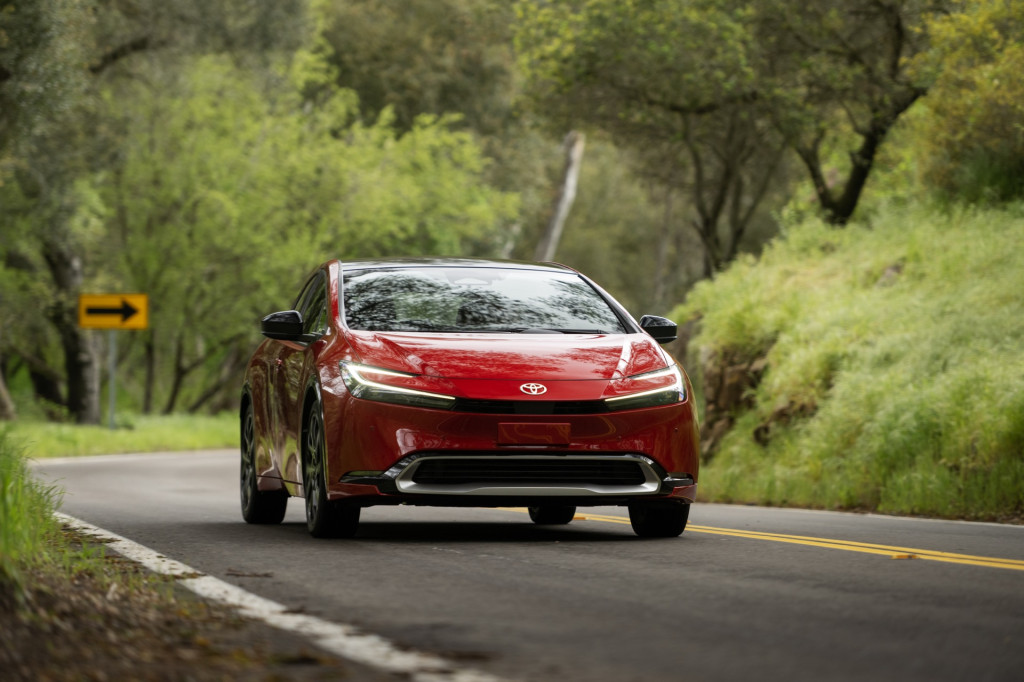Toyota is partnering with ExxonMobil to research plug-in hybrids powered by low-carbon fuels.
A short video recently released by the two companies discusses collaborative efforts to reduce emissions, including low-carbon fuels being developed by ExxonMobil that the company claims have the potential to reduce greenhouse gas emissions by up to 75% compared to conventional fuels.
Toyota is testing these fuels, according to the video, which shows a RAV4 Prime plug-in hybrid being rigged with testing equipment, run on a dynamometer, and driven on what appears to be a test track. While the video says these tests have confirmed that ExxonMobil's low-carbon fuels are compatible with current vehicles, it doesn't specify which fuels were tested.

Toyota RAV4 Prime used to test ExxonMobile low-carbon fuel
Toyota recently announced that it plans to push the electric range of some of its plug-in hybrid models beyond 120 miles. Perhaps this is an attempt to lower their emissions even further while adhering to the automaker's strategy of continuing to develop multiple powertrain technologies rather than go all-in on battery-electric vehicles.
The partnership between Toyota and ExxonMobil goes back decades. A Toyota press release dated 25 years ago notes that an alliance between the companies would aim for “integrated research approach to develop hardware and fuel combinations that provide improved energy efficiency and reduced emissions."

2023 Toyota Prius Prime
The history goes even farther back than that. Exxon (as the company was then known) itself researched hybrid cars in the 1970s, building a hybrid Cressida sedan with Toyota (one of two hybrid prototypes at the time)—as well as a Chrysler Cordoba later.
ExxonMobil’s involvement with modern EVs goes back to 2009, when it launched an effort called AltCar, using a fleet of electric vehicles the company even had a role in creating.
How low-carbon fuels will fit into the emissions-reduction puzzle remains to be seen. California last year proposed new allowances for renewable fuels, although some groups criticized the decision as potentially delaying EV adoption.











